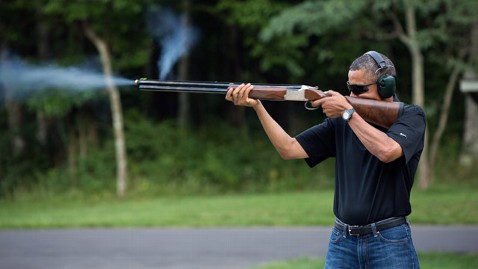WASHINGTON (AP) — Facing a wave of lawsuits over what government can tell religious groups to do, the Obama administration on Friday proposed a compromise for faith-based nonprofits that object to covering birth control in their employee health plans.
Some of the lawsuits appear headed for the Supreme Court, threatening another divisive legal battle over President Barack Obama's health care overhaul law, which requires most employers to cover birth control free of charge to female workers as a preventive service. The law exempted churches and other houses of worship, but religious charities, universities, hospitals and even some for-profit businesses have objected.
The government's new offer, in a proposed regulation, has two parts.
Administration officials said it would more simply define the religious organizations that are exempt from the requirement altogether. For example, a mosque whose food pantry serves the whole community would not have to comply.
For other religious employers, the proposal attempts to create a buffer between them and contraception coverage. Female employees would still have free access through insurers or a third party, but the employer would not have to arrange for the coverage or pay for it. Insurers would be reimbursed for any costs by a credit against fees owed the government.
It wasn't immediately clear whether the plan would satisfy the objections of Roman Catholic charities and other faith-affiliated nonprofits nationwide challenging the requirement.
Kyle Duncan, general counsel for the Becket Fund for Religious Liberty, which is representing religious nonprofits and businesses in lawsuits, said many of his clients will still have serious concerns.
"This is a moral decision for them," Duncan said. "Why doesn't the government just exempt them?"
Neither the Catholic Health Association, a trade group for hospitals, nor the U.S. Conference of Catholic Bishops had an immediate reaction, saying the regulations were still being studied.
Some women's advocates were pleased.
"The important thing for us is that women employees can count on getting insurance that meets their needs, even if they're working for a religiously affiliated employer," said Cindy Pearson, executive director of the National Women's Health Network.
Policy analyst Sarah Lipton-Lubet of the American Civil Liberties Union said the rule appeared to meet the ACLU's goal of providing "seamless coverage."
Health and Human Services Secretary Kathleen Sebelius said in a statement that the compromise would provide "women across the nation with coverage of recommended preventive care at no cost, while respecting religious concerns."
The birth-control rule, first introduced a year ago, became an election issue, with some advocates for women praising the mandate as a victory but some religious leaders decrying it as an attack on faith groups.
The health care law requires most employers, including faith-affiliated hospitals and nonprofits, to provide preventive care at no charge to employees. Scientific advisers to the government recommended that artificial contraception, including sterilization, be included in a group of services for women. The goal, in part, is to help women space out pregnancies to promote health.
Under the original rule, only those religious groups that primarily employ and serve people of their own faith — such as churches — were exempt. But other religiously affiliated groups, such as church-affiliated universities, Catholic Charities and hospitals, were told they had to comply.
Catholic bishops, evangelicals and some religious leaders who have generally been supportive of Obama's policies lobbied fiercely for a broader exemption. The Catholic Church prohibits the use of artificial contraception. Evangelicals generally accept the use of birth control, but some object to specific methods such as the morning-after contraceptive pill, which they argue is tantamount to abortion, and is covered by the policy.
Obama had promised to change the birth control requirement so insurance companies — and not faith-affiliated employers — would pay for the coverage, but religious leaders said more changes were needed to make the plan work.
Since then, more than 40 lawsuits have been filed by religious nonprofits and secular for-profit businesses contending the mandate violates their religious beliefs. As expected, this latest regulation does not provide any accommodation for individual business owners who have religious objections to the rule.
Questions remain about how the services ultimately will be funded. The Health and Human Services Department has not tallied an overall cost for the plan, according to Chiquita Brooks-LaSure, an HHS deputy policy director.
However, in its new version of the rule, the department argues that the change won't impose new costs on insurers because it will save them money "from improvements in women's health and fewer child births."
The latest version of the mandate is now subject to a 60-day public comment period. The overall mandate is to take effect for religious nonprofits in August.
___
Zoll reported from New York. Associated Press writer David Crary in New York contributed.











